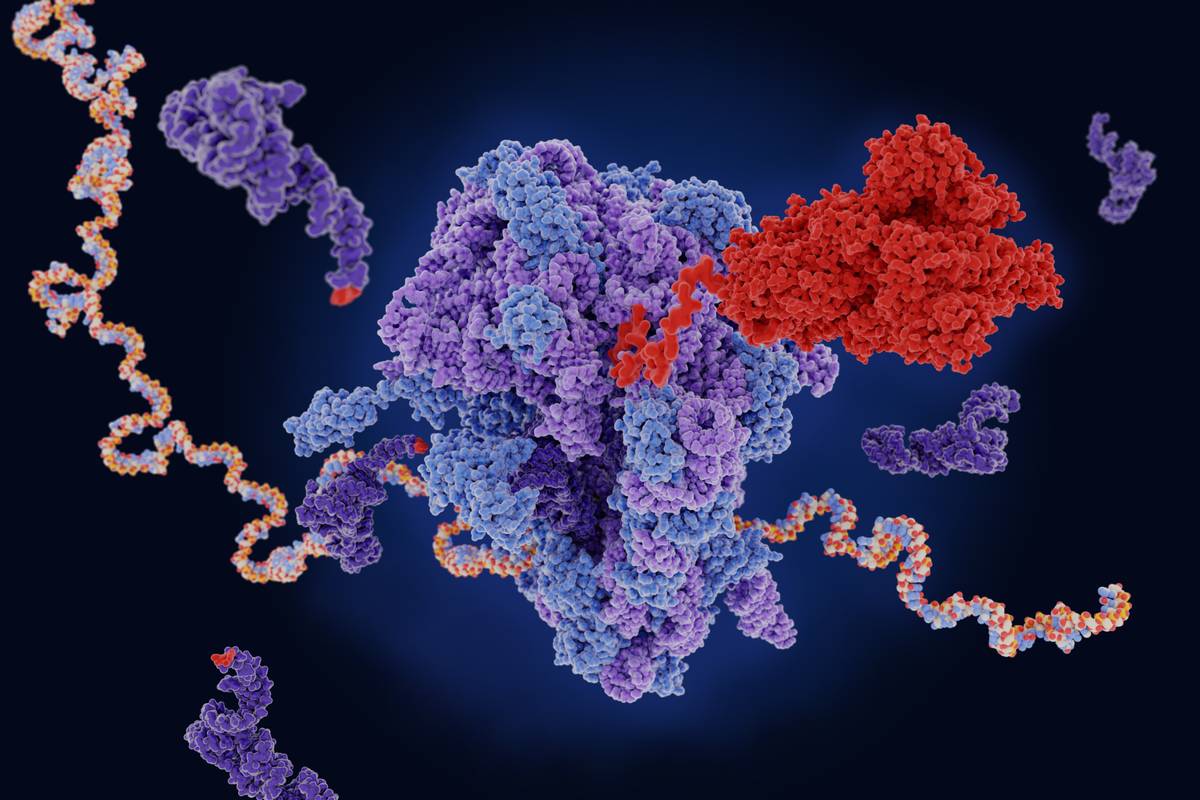Stabilised RNA Therapeutics
Method to stabilise RNA-based therapeutics for improved storage characteristics and logistics

Background
The CoVid pandemic has seen the rapid evolution and development of messenger ribose nucleic acid (mRNA) based vaccination therapies. It is likely that the use of mRNA based vaccinations and therapeutics (BioNTech is developing RNA-based therapies for cancer etc) will become a much-used technology in the future. A key problem with mRNA based vaccines is that mRNA is rapidly degraded and thus must be kept at very low temperatures of c. - 80 ˚C, requiring specialist freezers such as found in universities or hospitals (normal freezers are c. 18 ˚C). This means that delivery has to be centralised at such facilities in developed economies and is likely to be completely unfeasible in emerging economies. An immediate concern for those with mRNA based therapies (e.g. Pfizer for CoVid 19) and those developing them is how to stabilize the mRNA so it can be stored in conventional freezers or, even better, with no refrigeration at all. This invention potentially stabilises mRNA molecules and enables storage at higher temperatures.
Technology Overview
The proposed technology offers a method of stabilizing mRNA to give improved stability as a function of pH and temperature, and protecting mRNA from enzymatic degradation by RNAses. mRNA is a delicate nucleic acid structure, prone to rapid degradation. The researchers are specialists in a class of materials which have a high affinity for nucleic acids. These materials will potentially stabilize mRNA for vaccines without the need for cryogenic / ultra-cold preservation and enable storage of mRNA in conventional freezers and also may even enable the mRNA to be stored as a powder.
Benefits
- Stabilisation of a wide range of biomolecules against pH and temperature degradation.
- Takes up nucleic acids with high efficiency.
- Low adverse side effects.
- Potentially compatible with the existing lipid-based encapsulation for delivery.
- Excludes free RNAse enzymes.
- Overall the technology will allow stabilisation of RNA to resist degradation at temperatures suitable for storage in regular freezers.
Applications
The primary application is to stabilise mRNA therapeutics for storage in non-specialist facilities.
Further applications may be enabled in:
- RNA stabilizing buffers; component of RNA isolation kits
- Storage of mRNA molecules that are sold via Life Sciences Companies
- Enzymatic reactions (buffers); siRNA, microRNA, shRNA transfection, etc.
Opportunity
We require partners with existing RNA therapeutics expertise to be co-applicants on the “Addressing limitations in manufacturing nucleic acid therapeutics – UKRI” funding call.